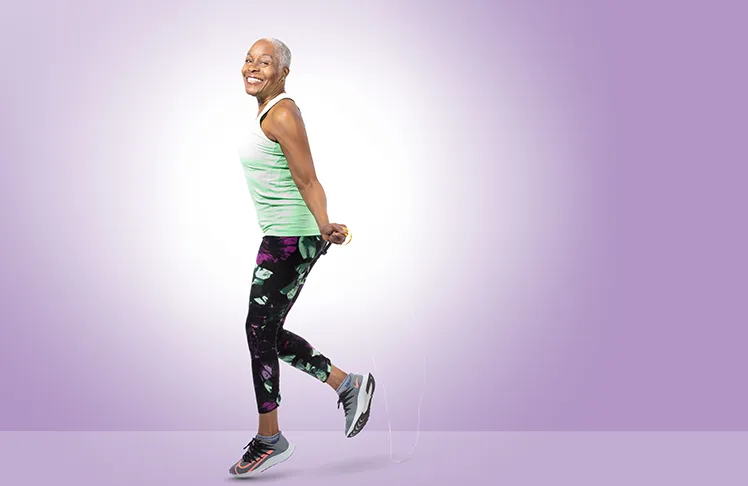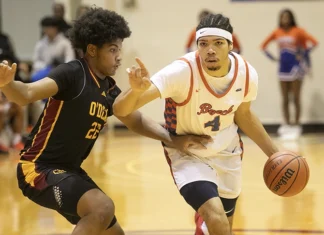
By Mattie Taplin, Special to The Medium
In 1994, I was a stay-at-home mom with an 18-month-old daughter and attending school to change careers to become a court reporter. When suddenly I became ill, my life was changed forever. After being informed I would need spinal cord surgery, I was never able to return to school – my overall body functions had been altered and I no longer had the manual dexterity in my hands to continue court reporting school. Instead, I was left with a limp, numbness in my arms and legs, and significant balance and stability issues. This started a decades-long journey – one that I’m still on to this day – to preserve my mobility as long as I can and to help others do the same.
After my surgery, I attended physical therapy to recover and address the post-op mobility impacts I was experiencing. While the physical therapy I received was helpful, I still felt like I was missing the resources or information that might have helped me stay healthy. One critical topic that was lacking in my recovery was information and support to prevent falls. Falls are the leading cause of fatal and nonfatal injuries for older Americans. More than one out of four Americans age 65+ falls each year. Among Black older adults nationwide, more than one in five reported a fall. And here in King County, nearly half of all injury-related deaths among residents age 65+ are due to unintentional falls.
After my surgery, I fell more times than I can count, including at home – a common place for falls. I would fall so often, I became used to the occasional fall as just a part of my life. I’ve always been active, but I became nervous to do my normal activities. And while I remember limiting my activity for fear of falling, this can actually increase the risk of falls, since bodies that aren’t active lose the strength that we need to stay safe and strong. In reality, there are many small steps we all can do on our own to reduce the risk of falling. These include things like talking to your doctor about medication side effects that might make you sleepy or dizzy; regularly having your vision checked; and making your home safer by installing grab bars in the bathroom and avoiding trip hazards like rugs.
Over time, I began to increase my level of activity with exercise. Understanding the importance of flexibility and strengthening my muscles was a game changer in my efforts to reduce falls. Since 2018, I have been an instructor for Enhance®Fitness and A Matter of Balance, both of which are fall prevention programs designed for older adults to mitigate the risk of falls. Building balance, strength, and flexibility are key to preventing falls. Even though most of us lose muscle as we age, keeping our limbs strong and staying flexible can make it easier to get up safely if a fall does happen, and make it easier to do daily activities. Participants often tell me how much they enjoy the class and how it has improved their overall physical health and well-being.
These exercise classes helped me tremendously and allowed me to get back to the active lifestyle I enjoyed before my surgery. Now as an instructor, I’m honored to be the kind of resource to others that I wish I had. One of my favorite exercises to teach is called “quick stops” where we walk slowly, speed up, and then quickly brake. This teaches how to position your body to balance and stabilize when it’s moving in a forward motion. When starting the class, I find that many people aren’t thinking about ways to help them age better. But I know from experience how lack of information can have a negative impact on someone’s life. The best thing I hear from participants is that they had a near fall that was stopped with one of the strategies we practiced in class.
Enlisting the support of others is another key step to prevent falls, and I’m so happy to play my part. My life is significantly better having the knowledge and awareness of what steps to take to reduce my own risk of falls, and I want more people in my community to feel empowered to keep themselves, their family members, and their neighbors safe and healthy. For more information on what you and your loved ones can do to reduce your risk of falling, please visit www.ncoa.org/FallsFreeSeattle.
Mattie Taplin has lived in Seattle since 1992 and is a retired Community Outreach Specialist with Sound Generations, a local organization that partners with older adults to provide accessible and inclusive services so they can age their way.



